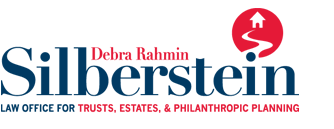Dear Clients,
I hope this letter finds you well, having enjoyed a prosperous 2013, good health, family, and friends.
As the year closes, I wanted to highlight some changes related to estate planning, estate administration, and elder law. You will find, for a refreshing change, most of these highlights to be positive.
My office would like to welcome our new associate, Attorney Christopher Davies. Attorney Davies is a May 2013 graduate of Boston University School of Law. Chris has also taken the role of Director of Social Media for the firm. Originally hailing from Edinburgh in Scotland, Chris completed his undergraduate studies at the University of St. Andrews in 2008 and, prior to beginning his legal studies, he was a political researcher at the Scottish and United Kingdom Parliaments, latterly working with the Chairman of the Select Committee on Innovation and Higher Education. Chris will focus on elder law, business matters as they relate to estate planning, and general estate planning matters. He resides in Andover with his wife Kathryn.
Estate Planning and tax related matters:
As many of you already know ATRA, the American Taxpayer Relief Act of 2012, made significant changes to our tax laws. The federal estate and lifetime gift tax exemption amount was changed to $5 million adjusted for inflation. Effectively this amount will be $5.34 million per person for 2014. In addition, a surviving spouse may cumulate any unused exclusion amount of the deceased spouse. This means that if the first spouse to die does not use any portion of his or her exclusion amount, the survivor would need to have an estate valued at over $10.68 million to have a taxable estate for federal estate tax purposes. The rate of federal estate tax is 40%.

Please note, the Massachusetts estate tax exemption amount remains at $1 million, and the rate of tax ranges anywhere from 8% to 16% based on the value of the estate. There is no Massachusetts gift tax.
Income tax rates increased for most of our clients, and many of you will begin to see the impact of the new Medicare surtax of 3.8% in 2014. The top rate of income tax and long-term capital gain tax rates also increased. Trusts are taxed at the highest income tax rates on accumulated income greater than $11,950. As a result, income tax planning is increasingly important, particularly with regard to Trusts.
Statutory changes:
The Massachusetts Uniform Probate Code (MUPC) was adopted in 2012, the changes were significant, and the benefits (after a learning curve for both counsel and the courts) seem to be beginning to accrue. Generally, appointments are faster and legal fees and costs tend to be less for the informal administrations.
Massachusetts also adopted the Uniform Trust Code (MUTC). Overall, the goal was to minimize the court involvement in trust administration and to bring Massachusetts law in line with other states. See also newsletter for more detailed information about the MUTC (http://tinyurl.com/DRSMUTC).
Also, related to trust administration was the 2013 Supreme Judicial Court opinion in MORSE v. KRAFT, which involved the interpretation of an irrevocable trust instrument created in 1982 for the benefit of the children of Robert and Myra Kraft. The case approved the “decanting” of Trust property, even though the language of the Trust did not specifically grant the Trustee such a power. Decanting is, very generally, the transfer of Trust assets to a second Trust. It is most often used to alter an irrevocable Trust’s administrative provisions, but – controversially – also could be used to amend the substantive provisions of a Trust instrument. While the Court found that the Trustee, in whom the Trust vested broad powers of distribution, could exercise an implicit decanting power, it did not grant a broad common law decanting power to all Trustees. Preferring to leave the issue to the legislature, the Court stressed that the outcome of future cases would depend on the facts and circumstances of each individual case. The Court also put estate planning attorneys and trust grantors on notice that trusts drafted after the issuance of the opinion may not be interpreted by the same standard, noting the prevalence of decanting provisions in modern trust instruments. While a number of states have adopted decanting legislation, the Massachusetts legislature has not yet acted. The grantor of any Trust should therefore be aware that, in order to achieve the flexibility of decanting, or to expressly avoid its potential pitfalls, a Trust amendment may be necessary.
Other Notes:
I continue to serve on the Massachusetts Bar Association Probate Law Section Council. Attorney Davies and I are currently working on two (2) articles for publication, one on decanting and the other on philanthropy (and the use of donor advised funds).
I submitted an amicus brief on behalf of Massachusetts NAELA (National Association of Elder Law Attorneys), in the case of BARBARA JOHNSON & others, Plaintiff-Appellant, v. KINDRED HEALTHCARE INC. & others, Defendant-Appellee. The case has to do with the powers of a health care agent with regard to arbitration with nursing homes. AARP has also filed an amicus brief. We are awaiting the outcome from the Massachusetts Supreme Judicial Court.
I will be attending the 48th Annual Heckerling Institute on Estate Planning the week of January 13, 2014. This is a national estate planning conference, combining the top estate planning lawyers from all over the country (and other related advisors). I will plan to send out a newsletter following this session.
We are connected to Facebook (http://www.facebook.com/debrarahminsilberstein), LinkedIn (http://tinyurl.com/drslinkedin), and Twitter (@debrasilb). If you log on to our Facebook page, you will receive our periodic updates and newsfeed. You can also log on to our website at http://debrasilberstein.com.
I thank you again for the continuing honor and opportunity to be of service to you.
Very truly yours,
Debra Rahmin Silberstein




